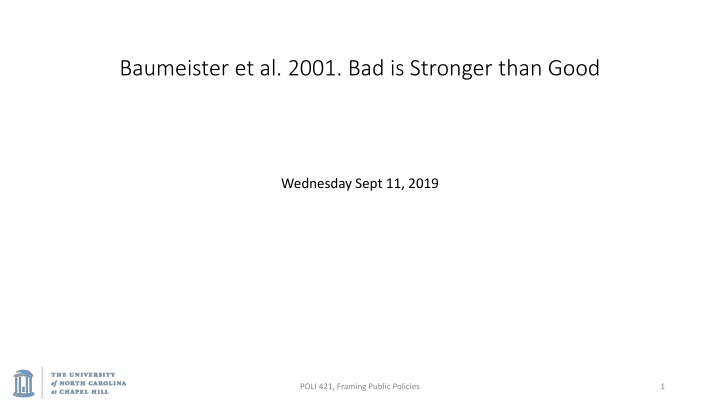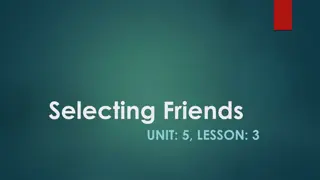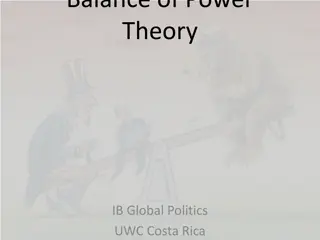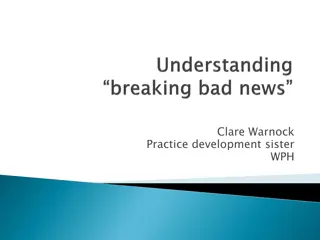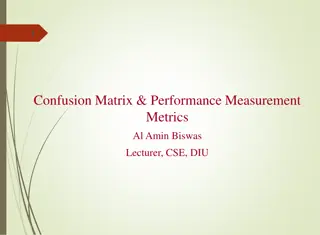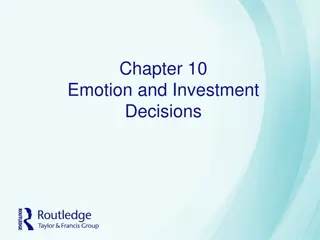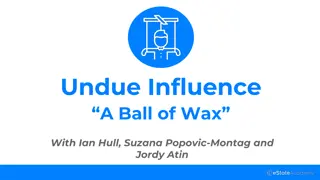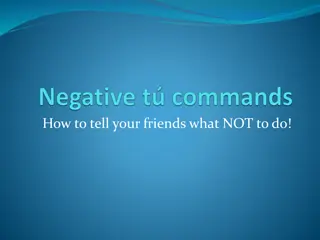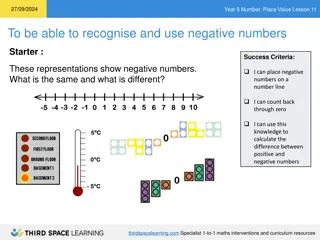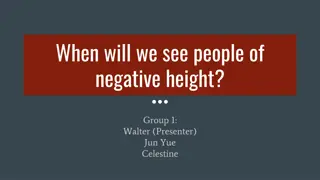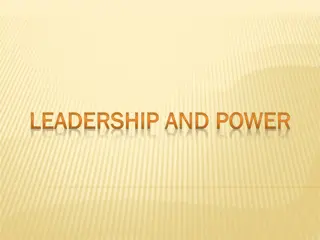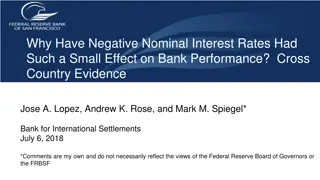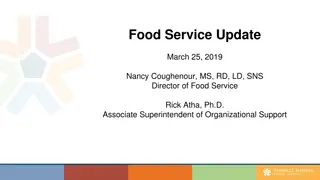The Power of Negative Influence: Bad is Stronger than Good
Understanding human irrationality and the tendency to focus more on negative experiences can influence decision-making and behavior. Negative campaign ads, the impact of winning and losing, and the concept that bad experiences carry more weight than good ones all highlight how cognitive bias plays a role in shaping perceptions and actions. These insights are crucial for framing public policies and manipulating social responses.
Download Presentation

Please find below an Image/Link to download the presentation.
The content on the website is provided AS IS for your information and personal use only. It may not be sold, licensed, or shared on other websites without obtaining consent from the author.If you encounter any issues during the download, it is possible that the publisher has removed the file from their server.
You are allowed to download the files provided on this website for personal or commercial use, subject to the condition that they are used lawfully. All files are the property of their respective owners.
The content on the website is provided AS IS for your information and personal use only. It may not be sold, licensed, or shared on other websites without obtaining consent from the author.
E N D
Presentation Transcript
Baumeister et al. 2001. Bad is Stronger than Good Wednesday Sept 11, 2019 POLI 421, Framing Public Policies 1
From last time: Why do we care about people s irrationality? Not, certainly, to suggest anything bad about humans. (Others can do that if they want!) If we are prone to particular patterns of irrationality, such as an irrational fear of dread risks (things we don t know much about), then maybe others can take advantage of this and manipulate us. Or, if we understand how others will over- or under-respond to certain things, maybe we can manipulate them In any case, understanding the brain is fundamental to understanding framing. Framing would not work on a computer. They just want the numbers POLI 421, Framing Public Policies 2
Why do we have negative campaign ads? Because Bad is stronger than Good! This article: from 2001, gives a summary of findings. a general principle across a broad range of psychological phenomena. Let s say your romantic interest shows up on time (good). Then let s imagine that the jerk fails to show up on time (bad). Which will you remember or respond to more powerfully??? How many good things would they have to do to make up for the bad? POLI 421, Framing Public Policies 3
Winning and losing What will affect you more? Winning $100 that you don t currently have, or losing $100? Kahneman and Tversky also note this lack of transitivity. Here the idea is that one is stronger than the other. POLI 421, Framing Public Policies 4
Bad counts 5 times more than good? Let s say you are dating someone (so you can leave the relationship if you want; it is completely voluntary ) Or, take the romance out of it and let s say you have a sports partner (running, tennis, working out, whatever). Would you pull out of / cut off the relationship if: They failed to show up every other time? You had a single bad date / episode, but 100 fantastic ones? How many good experiences equalize a bad one? Their estimate: maybe 5 to 1 POLI 421, Framing Public Policies 5
Propinquity and friendship (p. 324) People become friends with those on their dormitory hallway, or otherwise in close proximity OK fine, but even more become enemies! What do you think of that? True or not? POLI 421, Framing Public Policies 6
Evolution and attention to threats (p. 325) organisms that were better attuned to bad things would have been more likely to survive threats Next week when we talk about motivated reasoning we ll see a similar argument. Sitting around happy and content while there are threats is not smart. POLI 421, Framing Public Policies 7
The many areas of psychology they discuss: Reacting to events: good happy events v. traumatic / bad ones. Close relationships: a few bad traits will kill off a relationship. Not-so-close relationships (friendship, social networks) Emotions (happy v. sad). There are even more words in the language for negative emotions than positive ones. What s the opposite of trauma? Learning: Rewards v. punishments Child development: exceptionally good parents or surroundings is not as good as exceptionally bad parents or surroundings is bad! POLI 421, Framing Public Policies 8
Continued Social Support systems: bad events, interactions, meanness, etc. has a bigger impact on well being than the same number of positives Information processing. We ll come back to this next week with motivated reasoning: You spend more time figuring out bad things, barriers, unexplained unwelcome events than you do wondering why you won a prize. Of course you won the prize; you are brilliant! Bad news, on the other hand, requires some thought to understand Memory: We remember bad things better than good things. Remember that break-up? That rejection letter? What is the corresponding good news you remember? POLI 421, Framing Public Policies 9
Continued Stereotypes: Bad reputations are easier to get and harder to lose than good reputations Forming impressions: initial bad experiences get imprinted; equal positives and negatives = negative. That s not math, that s your brain. Self-esteem and self-concepts. Surely, everyone thinks they are above average! But it s more complicated as we particularly are biased in minimizing the bad traits we think we have and more objective on our positives. Avoiding the bad is a stronger motivation than embracing the good Feedback: people listen to criticism more strongly than to praise POLI 421, Framing Public Policies 10
Continued Heath outcomes: What affects your health more: Stress or support? Ice-cream or quinoa? So, all in all, after 50 pages, these authors should have beaten this into our heads. Does it strike you as valid? On a personal level? With regards to framing public policies? POLI 421, Framing Public Policies 11
Why would this be? Generally, individuals who are attuned to preventing and rectifying bad things should flourish and thrive more than individuals oriented primarily toward maximizing good things. This argument is admittedly speculative. (p. 357) Bad things indicate you need to make a change If satisfaction and pleasure were permanent, there might be little incentive to continue seeking further benefits or advances If bad feelings wore off, people might repeat their mistakes POLI 421, Framing Public Policies 12
Do not despair: Even though a bad event may have a stronger impact than a comparable good event, many lives can be happy by virtue of having far more good than bad events. P. 362, last sentence of the article. POLI 421, Framing Public Policies 13
Is this really true? How does it affect framing? We will come back to a lot of this in the next few weeks: Anger on Wednesday Motivated reasoning next week Let s just understand how the brain works, how we respond to things, so we can understand how people manipulate us, how we can recognize that, and understand what is really happening when we see political discourse that seems strange or puzzling. It s not puzzling at all when political advocates do things like stereotype others. They are using proven techniques that exploit natural tendencies in the brain. POLI 421, Framing Public Policies 14
